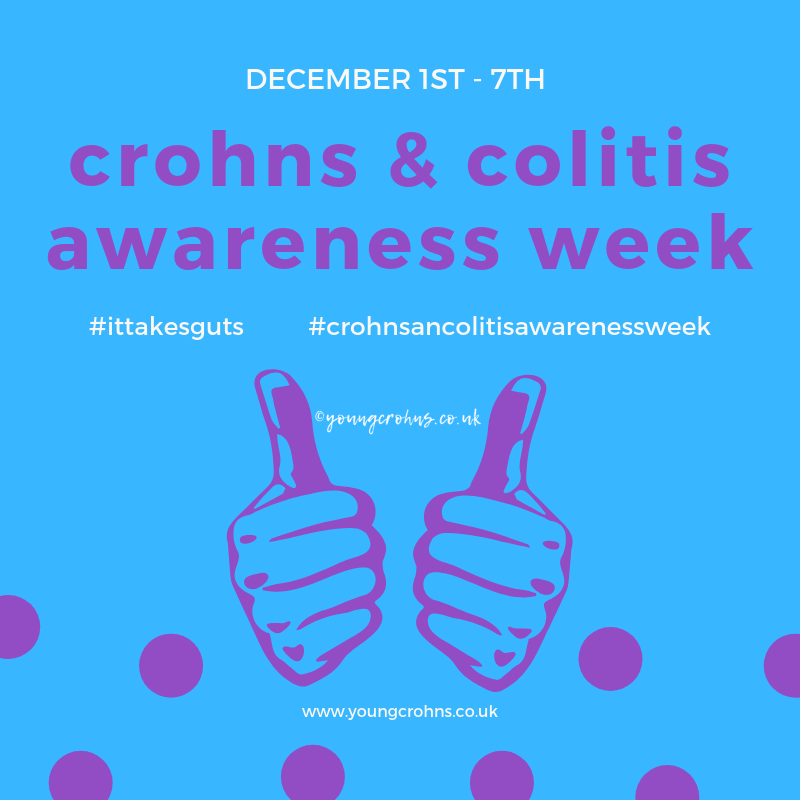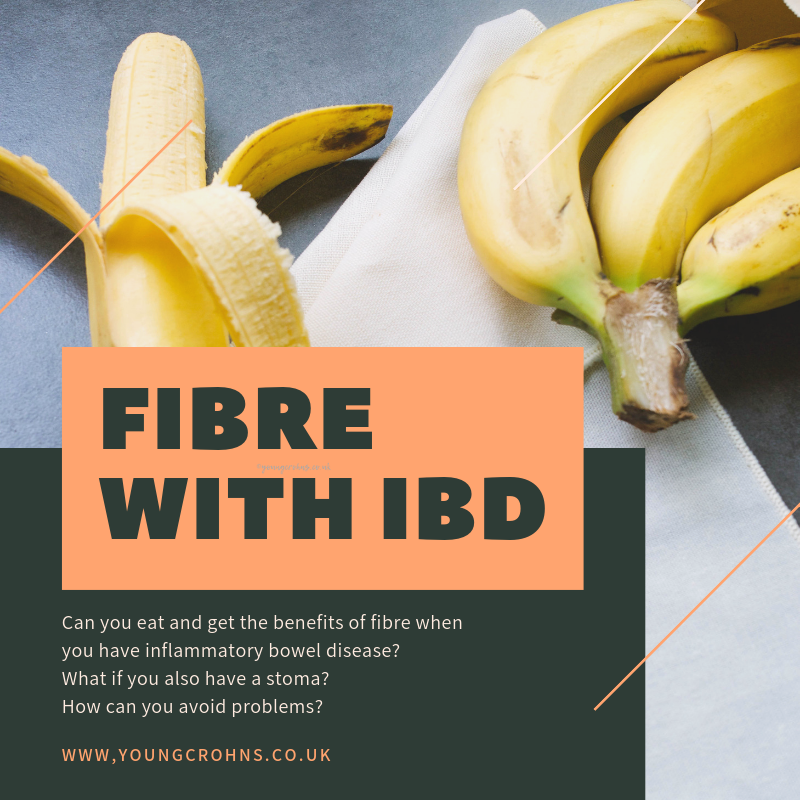
IBD Basics: Prebiotics, Probiotics & Antibiotics
Disclaimer: This information is based on my own research into this particular aspect of IBD as well as some personal experience and should not be used as medical advice or a diagnostic tool. The suggestions given within are taken from sources laid out in the references header. If you seek advice regarding the things you experience within your own disease, please contact your IBD team for medical advice.
If you are looking for the entire ‘IBD Basics‘ series, you can find them all here.
What are Prebiotics?
Prebiotics are made up of carbohydrates that your body can’t digest. They exist purely as food for the probiotic bacteria that you’re putting into your body. The use of prebiotics and probiotics together is called microbiome therapy. You don’t need to take a prebiotic for probiotics to work, but taking them might make your probiotics more effective.
What are Probiotics?
Probiotics are live bacteria and yeasts promoted as having various health benefits. They are thought to help restore the natural balance of bacteria in your gut (including your stomach and intestines) when it’s been disrupted by an illness or treatment.
It is believed that many people (not just those with IBD) have unbalanced gut bacteria – which may be due to a number of reasons. Some of these reasons include:
- Overuse of antibiotics and other medication
- Stress
- Diet
- Illness and chronic disease
Probiotics given with antibiotics may also reduce the risk of developing a Clostridium difficile (C. difficile) infection. This a potentially dangerous bacteria that can cause diarrhoea and life-threatening complications. It can infect the gut if the balance of gut bacteria is disturbed by antibiotics. Probiotics are thought to directly kill or inhibit the growth of harmful bacteria, stopping them producing toxic substances that can make you ill.
Probiotics can also help with pouchitis. When some ulcerative colitis patients need to have part of their bowel removed and a loop of bowel or ‘pouch’ constructed in its place. This can sometimes become inflamed, leading to diarrhoea and other problems. This is known as pouchitis. Some studies have shown that certain probiotic mixes available on prescription can help treat pouchitis.
What are Antibiotics?
Antibiotics are used to treat or prevent some types of bacterial infection. They work by killing bacteria or preventing them from reproducing and spreading. But they don’t work for everything.
Antibiotics are frequently used as a primary treatment approach in IBD, even though no specific infectious agent has been identified as the cause of these illnesses. However, researchers believe that antibiotics can help control symptoms of IBD by reducing intestinal bacteria and by directly suppressing the intestine’s immune system.
Although there are several antibiotics that may be effective for certain people, the two most commonly prescribed in IBD are:
- Metronidazole – also known as Flagyl
- Ciprofloxacin – also known as Cipro
Both metronidazole and ciprofloxacin are broad-spectrum antibiotics that by definition fight a wide range of bacteria. Metronidazole is the most extensively studied antibiotic in IBD.
Antibiotics are effective as long-term therapy in some people with IBD, particularly Crohn’s disease patients who have fistulas – abnormal channels between two loops of intestine, or between the intestine and another structures – or recurrent abscesses – pockets of pus – near their anus. And whilst helpful in people with Crohn’s disease, antibiotics are generally not considered useful for those with ulcerative colitis, either for maintaining remission or in acute situations.
Why are these important?
We are only just starting to understand the relationship between having a balanced microbiome and our health. As a digestive condition; IBD is frequently talked about in relation to our microbiome. As a result there are dozens of probiotic supplements and foods – which when ingested aim to populate your gut with friendly bacteria that you might be lacking in – some of which target people with IBD with a ‘fix’ to their imbalanced and inflamed digestive system.
How & why are they used to ‘treat’ IBD?
There is increasing evidence that suggests intestinal microbiotics plays a role in initiating, maintaining and determining the characteristics and development of IBD1, 2. People who report success with probiotics have found a reduction in symptoms such as bloating, diarrhoea, fatigue, skin conditions – such as eczema – and constipation. Probiotics are increasingly being recognised to help people who have irritable bowel syndrome. Many people with IBD suffer from a degree of IBS too.
However, studies into the effectiveness of probiotics on people with IBD are limited. There have been a few studies into specific strains of bacteria and their effect on IBD and even fewer studies specifically testing probiotic products on IBD. The success rate varies from person to person and a probiotic that may produce results for one person may not do the same for another. If you choose to take a probiotic it is recommended you do so alongside any other treatment you are undergoing and that you discuss taking it with your doctor before starting.
Side Effects & Important Information
- That the use of commercial prebiotics and probiotics is generally safe for healthy people. It is important to realise this, as those with IBD are not within the group of ‘healthy people’ and should proceed with caution or guidance from a healthcare professional.
- People that are currently on antibiotic medication seem to benefit the most from a prebiotic and probiotic combination. The symbiotic effect helps combat the healthy bacteria that are being killed off while you take antibiotics.
- In the UK most probiotics are governed under the same laws as foods, not medicines, and governing bodies include the European Food Safety Authority (EFSA), the Food Safety Authority (FSA) and the Advisory Committee on Borderline Substances. These bodies issue guidelines around what probiotic companies can say in relation to their product and health claims they can make.
- Metronidazole also has been shown to reduce the recurrence of Crohn’s for the first three months after ileum resection surgery. In more than 50 percent of those treated, metronidazole can be effective in managing perineal Crohn’s. Metronidazole also is used to suppress an overgrowth of C. difficile, a type of bacteria that causes inflammation.
- Another indication for metronidazole is in people who develop “pouchitis” after ileal-pouch anal anastomosis surgery. In this procedure, after the colon is removed, an internal pouch is formed from the patient’s ileum averting the need for an external appliance. Sometimes the pouch becomes severely inflamed; hence the term “pouchitis.”
- Ciprofloxacin is commonly used to treat active Crohn’s disease and pouchitis. It is also far safer than metronidazole.
- Side effects from both Metronidazole and Ciprofloxacin may include nausea, vomiting, loss of appetite, a metallic taste, diarrhea, dizziness, headaches, and discolored urine (dark or reddish-brown). Another side effect of long-term use is tingling of the hands and feet, which may persist even after the drug is discontinued.
My Experience
At present, I have yet to use probiotics to help elevate any of my Crohn’s symptoms. And whilst I respect the research being done into the gut microbiome, I would be hesitate to begin this a treatment without more research being done.
I have, however been on antibiotics for my Crohn’s disease. This was not a primary treatment plan, but as a reaction to infections caught whilst recovering from flare ups and surgeries.
Have you had to take antibiotics for your IBD? Have you found them useful as a treatment option? Have you any experience with pre or probiotics?
Do you have any questions or queries? Or just want to share your own experiences? You can leave me a reply here or leave comments via my social media accounts – on Twitter, find my blog page on Facebook and over on Instagram

Sources:
- Sartor RB. Microbial influences in inflammatory bowel diseases. Gastroenterology 2008;134:577–594. PubMed
- Sartor RB. Genetics and environmental interactions shape the intestinal microbiome to promote inflammatory bowel disease versus mucosal homeostasis. Gastroenterology 2010;139:1816–1819. Article
NHS – Probioitics – Antibiotics
Healthline – Prebioitics v Probioitics: What’s the Difference?
Mayo Clninic – Prebioitics, Probioitics and your Health
IBD Relief – Probioitics and Inflammatory Bowel Disease – Gut Bacteria & IBD
Crohns & Colitis Fondation – Antibioitics and IBD



